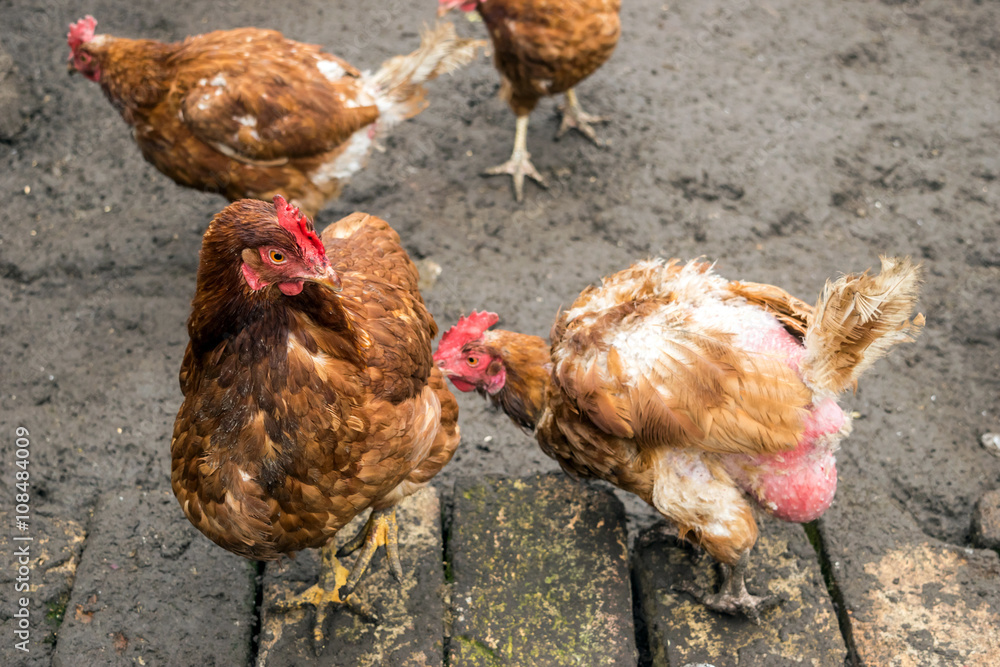In the realm of agriculture, ethical dilemmas often arise—especially when the practices involved appear to blur the lines between pragmatism and morality. One such contentious topic is the feeding of chicken-derived products to chickens themselves. This practice, while sometimes deemed a necessary component of poultry nutrition, raises critical questions regarding the implications of cannibalism in animal husbandry. Does this practice verge on cruelty, or is it merely a pragmatic approach to feeding? Understanding this complex issue necessitates a nuanced exploration of the dynamics involved.
At the core of this debate lies the term “cannibalism.” In its most traditional sense, cannibalism refers to the act of consuming a member of one’s own species. In the case of chickens, this includes instances where poultry feed contains rendered animal byproducts, including those derived from other chickens. The conceptual leap from practical farming to cannibalistic behavior is significant, yet understanding the context is crucial.
The modern poultry industry often emphasizes efficiency and productivity. With a need to maximize profits and meet an ever-increasing global demand for chicken meat and eggs, farmers frequently incorporate protein supplements into their flocks’ diets. These supplements can include fishmeal, soy, and, poignantly, rendered poultry byproducts. Proponents argue that this practice is an efficient way of utilizing all parts of livestock, thus minimizing waste. In this view, the integration of chicken meal into chicken feed resembles the broader practice of recycling nutrients within the agricultural sector.
Yet, this efficiency does not come without its controversies. The very act of feeding chickens meal produced from other chickens conjures images of natural instinct and behavioral repercussions. Chickens are inherently social animals, often establishing a complex hierarchy, and introducing such feeds can provoke unsettling reactions within the flock. Instances of pecking and the manifestation of aggressive behavior may stem from the consumption of their kin, prompting concerns about animal welfare. Can we, in good conscience, prioritize productivity over the mental well-being of these animals?
The ethical ramifications extend not only to the chickens themselves but resonate with the larger consumer base that advocates for humane treatment of animals. As individuals become increasingly aware of their food sources, the desire for transparency in farming practices grows. Many consumers wish to invest in agricultural practices that honor the well-being of animals. To this group, feeding chickens to chickens feels not just impractical but deeply unsettling. The juxtaposition of profitability against ethical standards produces a cognitive dissonance that begs for reassessment!
The crux of the dilemma is contained within the concept of “sustainable farming.” Advocates of sustainable practices argue for alternative feeding methodologies that do not rely on byproducts from the same species. Instead, the paradigm centers on utilizing plant-based proteins or byproducts from entirely different species. This shift not only alleviates the ethical concerns but also diminishes the risk of the spread of diseases among flocks, particularly conditions such as Avian Influenza or Salmonella. These proactive measures epitomize the evolution of farming practices and provide a tangible solution to the crisis of animal cruelty.
Diving deeper into the nutritional science, one must assess if chickens truly require animal protein for optimal health. A multitude of studies indicates that chickens can thrive on a fully vegetarian diet, supplemented with necessary vitamins and minerals. Thus, the rationale for using chicken byproducts weakens under scrutiny. Rather than perpetuating a cycle that could potentially lead to harmful behaviors and health issues, a more compassionate approach emerges—adopting vegetarian feeds could serve as both a practical and ethically responsible alternative.
Addressing consumer concerns in the agriculture world necessitates a frank discussion about the benefits of humane farming practices. Given the growing inclination of consumers toward vegetarian and ethically sourced products, farmers stand at the intersection of tradition and modern expectations. The adoption of plant-based feeds can satisfy market demand while alleviating ethical burdens, creating a win-win scenario for both farmers and advocates of animal welfare.
However, the call for change must be accompanied by education and awareness. Farmers must be informed about the potential consequences of their feeding practices while being equipped with knowledge of acceptable alternatives. Local governments and agricultural institutions play a vital role in fostering a culture of sustainability and ethical responsibility through workshops and training programs. This collaborative approach in reforming feeding practices will not only preserve animal welfare but ultimately contribute to a more resilient agricultural sector.
In conclusion, the practice of feeding chickens to chickens encapsulates a multifaceted dialogue regarding the interplay between practicality, ethics, and animal welfare. While the argument for efficiency and productivity remains prevalent, it is crucial to re-evaluate the implications of such practices. A progressive agricultural framework that embraces alternative feeding options will not only address the moral quandaries associated with cannibalism but will also align with a consumer base demanding responsible and humane farming. By fostering a future where ethical considerations are at the forefront of agricultural practices, the industry can herald a new dawn—one that inherently values the lives of all creatures under its care. This promising shift requires an attentive eye toward the complexities of our choices, ultimately leading to a more compassionate and sustainable approach to farming.








